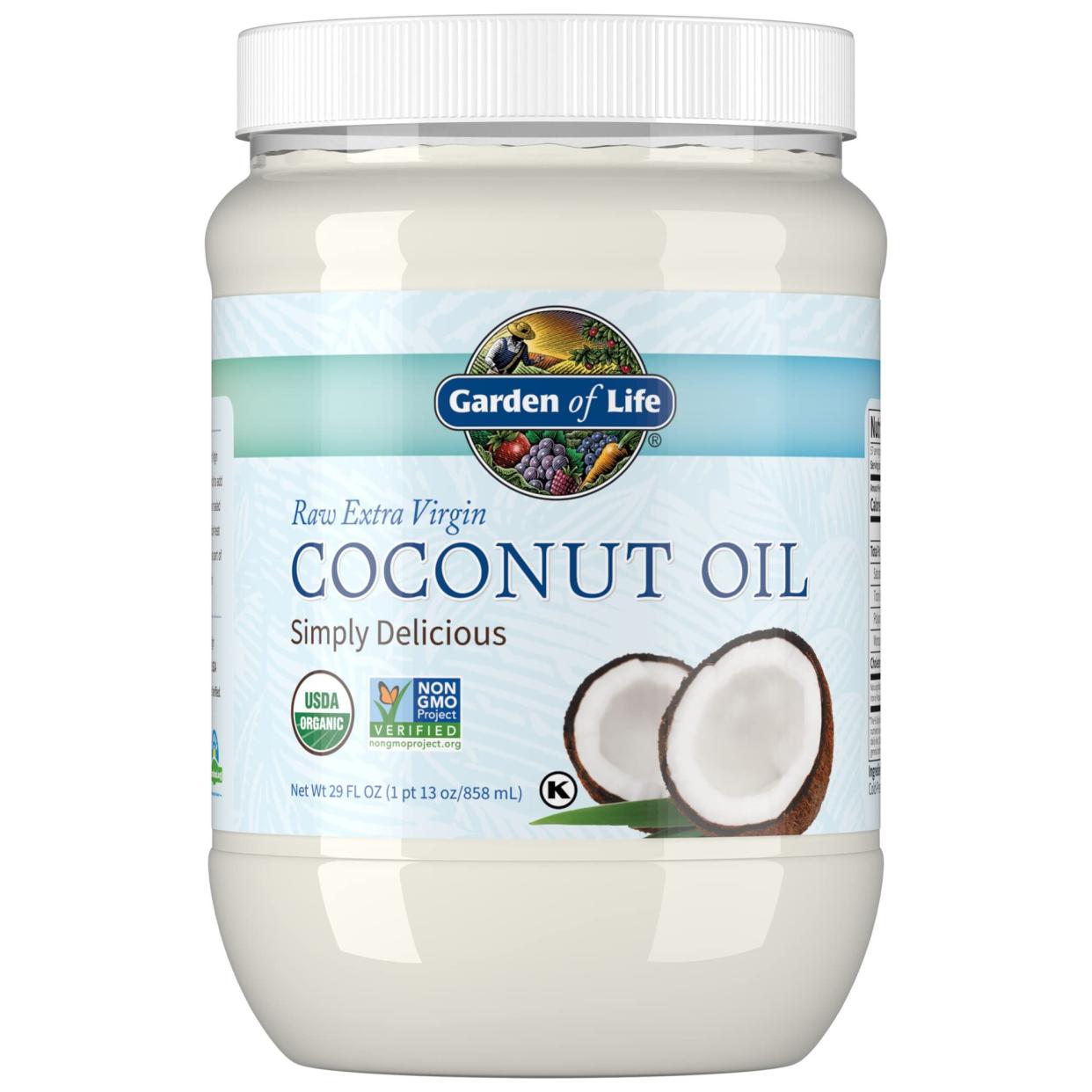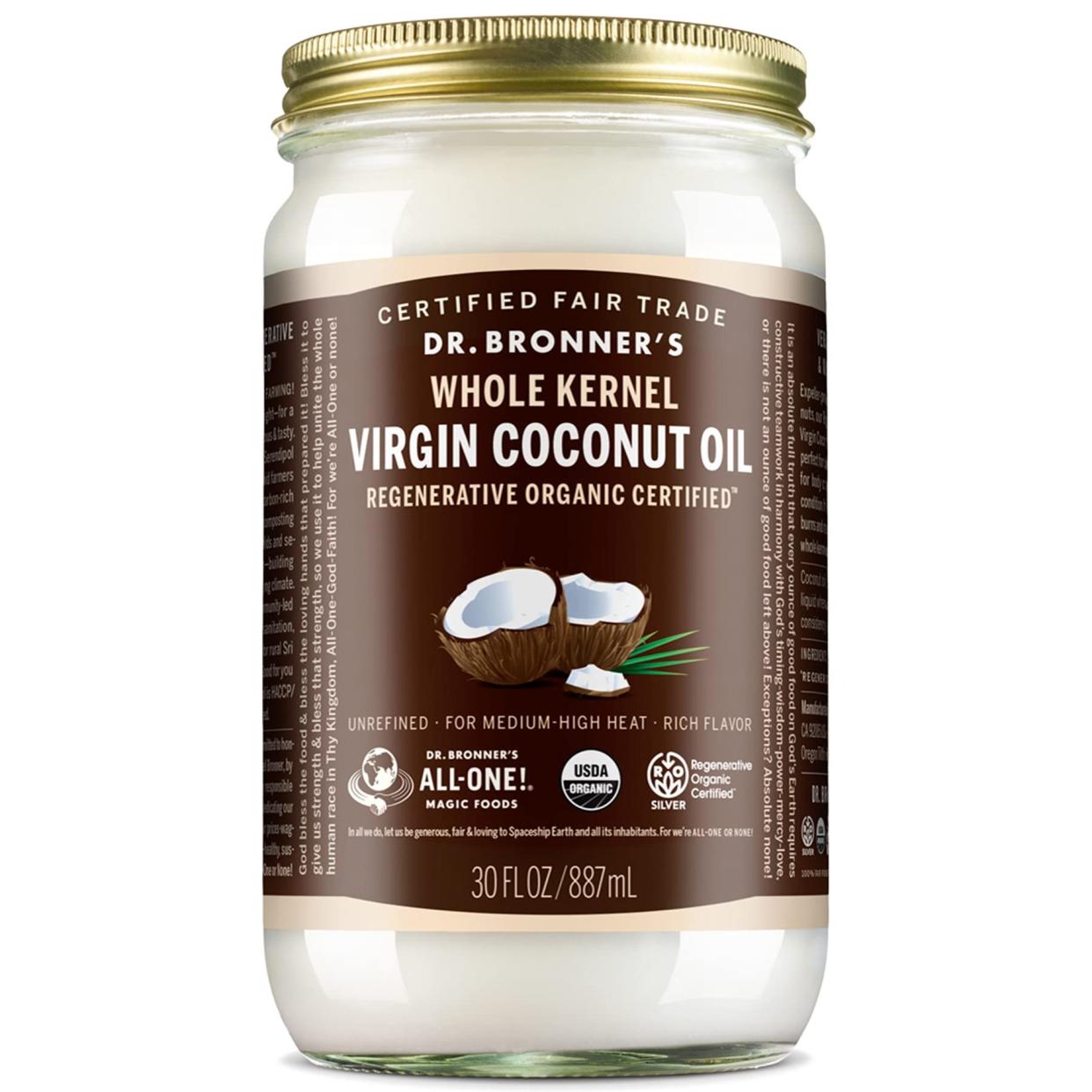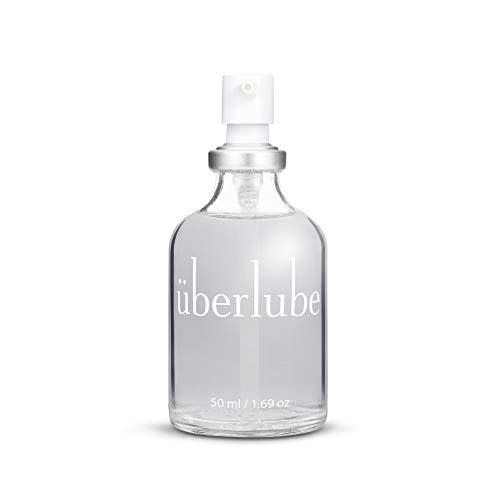“Hearst Magazines and Yahoo may earn commission or revenue on some items through these links.”
You have a lot of options when it comes to combating vaginal dryness, but it’s fair to want to go the natural route by using something like coconut oil as lube. After all, coconut oil in general is known for certain health benefits and has a consistency that just makes sense for a lubricant. And, it’s probably the most popular natural lube option, says Alyssa Dweck, M.D., an ob/gyn in New York and co-author of The Complete A to Z for Your V.
Still, every body is different, and coconut oil can disrupt the vagina’s natural pH balance (a measure of how acidic it is). There are also a few other important risks to be aware of, which we’ll get into soon.
That said, if vaginal dryness is a consistent issue for you and/or you’re having trouble finding the right lube, check in with your ob/gyn. They can give you an exam to see what could be behind your discomfort and recommend next steps from there.
But if you’re curious about using coconut oil as lube, keep reading for what ob/gyns and a sex therapist want you to know. Plus, other expert-approved lube options to consider.
Meet the experts: Alyssa Dweck, M.D., is an OB/GYN in New York and co-author of The Complete A to Z for Your V. Jessica Shepherd, M.D., is an ob/gyn in Texas. Robert Kiltz, M.D., is a diplomat of the American Board of Obstetrics and Gynecology and author of The Fertile Feast. Jennifer Wider, M.D., is a women’s health expert. Jess O’Reilly, Ph.D., is the host of the Sex With Dr. Jess podcast.
Are there any risks to using coconut oil as a personal lubricant?
There are a few things to keep in mind when it comes to using coconut oil as lube.
“If used excessively or [if] the coconut oil has additives, it can alter the [vagina’s] pH and raise the risk of [a] yeast infection or bacterial vaginosis,” says women’s health expert Jennifer Wider, M.D.. The normal pH of the vagina is acidic and coconut oil can make it an alkaline environment, resulting in a disturbance of bacteria. So, especially if you’re prone to yeast infections, then it’s a good idea to steer clear of using coconut oil as lube.
“The other limitation with any oil-based lubricant is that they are not considered condom-compatible, so if you are relying on a condom to protect you against STDs or pregnancy, you really can’t rely on it 100% when using an oil,” Dr. Dweck explains, explaining that coconut oil can degrade latex, compromising latex condoms.
And, although rare, there is a risk of allergic reaction when using coconut oil as lube, says Robert Kiltz, M.D., a diplomat of the American Board of Obstetrics and Gynecology and author of The Fertile Feast. If you’ve never used coconut oil before, apply a small amount to your wrist and take note of any changes, such as a skin rash, before using it as lube.
And not for nothing, coconut oil can be messy. “It can leave stains or cause dyes to bleed from sheets and clothing made of certain materials,” says Jess O’Reilly, Ph.D., host of the Sex With Dr. Jess podcast.
Is it safe to use coconut oil as lube?
While studies have shown that coconut oil is clinically proven for safe and effective use as a moisturizer, there’s not a ton of research around using it as lube. However, O’Reilly points to a small study that suggests that virgin coconut oil in paste form may be promising for addressing dryness and pain with intercourse.
That said, and while it’s always best to check in with your own doctor for personalized advice, Dr. Wider says that many people have used coconut oil as lube safely.
But you’ll definitely want to reach for a clean jar, says Dr. Kiltz. Putting your fingers in a large container of coconut oil over time could raise the risk of bacterial growth that could cause infections, he points out. Instead, it’s safer and more hygienic to use a spoon to scoop it out.
Benefits of using coconut oil as lube
There are a few potential coconut oil benefits, including the following, according to Dr. Shepherd:
-
A thicker texture than other lubricants, like silicone
-
Helps mitigate friction during sex
-
Free of fragrance, which may cause irritation
-
Adds moisture to the vagina
Jessica Shepherd, M.D., an ob/gyn in Texas, adds that coconut oils moisturizing properties may make the product an effective lube and allow for longer-lasting intercourse. “It can help vaginal dryness, alleviate friction during sex, and minimize tears,” she says.
What kind of coconut oil should I use?
If you’re using coconut oil as lube, you’ll want to be conscious of what’s in the jar you choose. A good rule of thumb is to use virgin, cold-pressed coconut oil. “It’s less likely to have additives that can cause irritation,” Dr. Wider says.
In general, it’s best to select a coconut oil variety that is not only free from fragrances and other additives but is also in the least processed form possible.
Organic Coconut Oil
$7.74 at Amazon
Coconut Oil

$15.39 at amazon.com
Organic Virgin Coconut Oil

$21.99 at amazon.com
How to use coconut oil as lube
Coconut oil is usually a solid form at room temperature, but changes to a liquid when it’s warmed up. O’Reilly recommends warming it in your hands before you apply it to your skin.
“Some people complain that if you rub it directly on the skin when it’s still in solid form, it can be uncomfortable and even a little rough,” she says. “It does, however, feel lovely once melted into its liquid form.”
If you’re concerned about staining your sheets, it also doesn’t hurt to put an old, but clean, towel below you to protect your bedding.
Alternatives to coconut oil for sex
For OTC options, Dr. Dweck recommends silicone lubricants such as Uberlube. “Silicone lasts a long time and it’s not water-soluble, so you can use it in water,” she says, adding that silicone lubricants are also condom-compatible. Water-based lubes are also an option. “They are best for people with sensitive skin and will not break down the latex in a condom,” Dr. Wider says. “Try to find varieties that are fragrance- and preservative-free.”
Latex-Safe Silicone Lube

$20.00 at amazon.com
You can also use pure aloe vera—just make sure it’s free of the cooling agents and additives that are sometimes added to aloe vera products to treat sunburns, he says. “The vagina is a mucosal membrane, unlike the skin,” Dr. Kiltz explains. The skin is a much stronger barrier and is less sensitive to chemicals in aloe vera products designed for sunburn that, if used as lube, could disrupt the vaginal microbiome, he says.
To combat dryness in general, you can also ask your doctor about vaginal moisturizers (like Replens), which are “used more on a chronic basis, like every day or every other day, to help prevent dryness,” Dr. Dweck says. For those going through menopause, she says vaginal estrogens are great for those experiencing dryness, as they add moisture and can also be used as a lubricant during sex. Vaginal estrogens are used to treat dryness, itching, painful urination, and the sudden need to urinate in women who are experiencing menopause, but you’ll need a doctor’s prescription to get them.
Additional reporting by Alisa Hrustic
You Might Also Like
-
Can Apple Cider Vinegar Lead to Weight Loss?
-
Bobbi Brown Shares Her Top Face-Transforming Makeup Tips for Women Over 50






